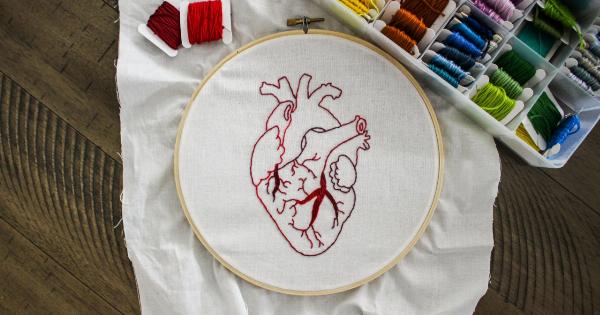For individuals living with diabetes, managing blood sugar levels is a daily challenge. One aspect that requires careful attention is their dietary intake of sugar.
Traditional sweeteners like table sugar (sucrose) or high-fructose corn syrup are typically high in calories and can cause significant spikes in blood glucose levels. However, thanks to the development of oligothermic sweeteners, diabetics can now rejoice as there are safer and more effective alternatives available.
Understanding Oligothermic Sweeteners
Oligothermic sweeteners, also known as low glycemic sweeteners, are a category of sugar substitutes that do not significantly impact blood sugar levels.
These sweeteners contain minimal carbohydrates, making them a suitable choice for people with diabetes who need to control their glycemic response.
Stevia: A Natural Alternative
One popular oligothermic sweetener is stevia, a natural plant-derived sweetener that is significantly sweeter than sugar.
Stevia has been used for centuries in South America and has gained global recognition as a safe and all-natural alternative to sugar. It contains zero calories and has no impact on blood glucose levels, making it an ideal choice for diabetics.
Erythritol: A Low-Calorie Option
Erythritol is another oligothermic sweetener that is gaining popularity among health-conscious individuals, including those with diabetes.
Although it is classified as a sugar alcohol, it is not metabolized by the body and, therefore, has no impact on blood sugar levels. Erythritol provides a sweet taste without the added calories of sugar, making it a great option for diabetics looking to satisfy their sweet cravings.
Benefits of Oligothermic Sweeteners for Diabetics
There are several compelling reasons why diabetics should consider using oligothermic sweeteners as part of their dietary regimen:.
1. Blood Sugar Control
Oligothermic sweeteners have a minimal impact on blood sugar levels, allowing individuals with diabetes to enjoy sweet tastes without worrying about undesirable glycemic responses.
This control over blood sugar is essential in maintaining stable glucose levels and overall well-being.
2. Caloric Impact
Unlike regular sugar, oligothermic sweeteners generally have reduced or zero calorie content. This advantage is particularly vital for diabetics who may also need to manage their weight.
By using low-calorie sweeteners, they can indulge in sweet flavors without consuming excessive calories that can affect their overall health.
3. Natural and Safe
Many oligothermic sweeteners, such as stevia, are derived from natural sources and have undergone rigorous testing to ensure their safety.
For individuals who prefer to avoid chemically processed sugar substitutes, oligothermic sweeteners provide a viable and natural alternative.
4. Versatility in Use
Oligothermic sweeteners can be used in a variety of food and beverage applications, making them highly versatile.
From sweetening hot beverages and baked goods to adding flavor to sauces and desserts, they offer the same taste satisfaction as sugar without the harmful effects on blood sugar levels.
5. Greater Control Over Sweetness
Since oligothermic sweeteners are significantly sweeter than sugar, smaller quantities are needed to achieve the desired level of sweetness.
This means diabetics can have better control over the amount of sweetener they use, further reducing their overall sugar intake.
Managing Diabetic Diets with Oligothermic Sweeteners
There are a few key factors that diabetics should consider when incorporating oligothermic sweeteners into their diets:.
1. Moderation
While oligothermic sweeteners are safe for diabetics, moderation is still key. Excessive consumption of any sweetener, even those low in calories or carbohydrates, can potentially have negative health consequences.
Therefore, it is important to use these sweeteners in moderation as part of a well-balanced diet.
2. Monitoring Blood Glucose Levels
Even though oligothermic sweeteners have minimal impact on blood sugar levels, it is still essential for diabetics to monitor their glucose regularly.
Each individual’s response to sweeteners may vary, so keeping track of blood glucose levels will help determine if any adjustments need to be made to maintain stability.
3. Consulting with Healthcare Professionals
Before making any significant alterations to their dietary regimen, individuals with diabetes should consult with their healthcare professionals.
They can provide personalized guidance on incorporating oligothermic sweeteners into a diabetic meal plan, taking into consideration factors such as overall health, medications, and individual dietary needs.
Conclusion
Oligothermic sweeteners offer a safe and effective alternative for diabetics who desire sweetness in their diets without compromising blood sugar levels.
With options like stevia and erythritol, individuals can enjoy the taste of sweetness while effectively managing their diabetic condition. However, it is essential to practice moderation, monitor blood glucose levels, and consult with healthcare professionals for personalized advice. The advent of oligothermic sweeteners truly gives diabetics a reason to rejoice.






























